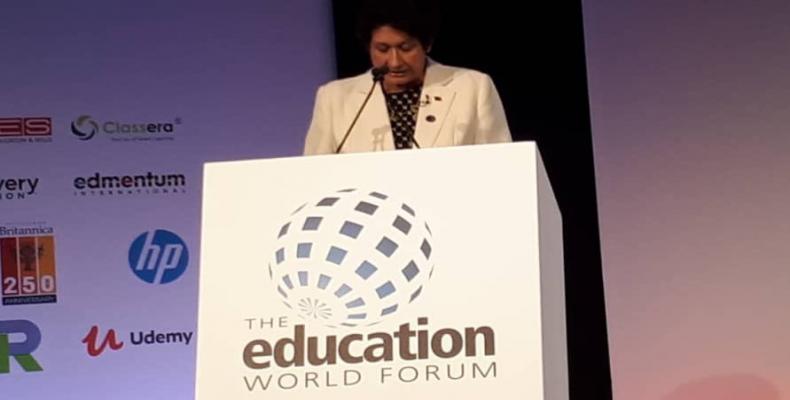London, January 21 (RHC)-- Cuba's Minister of Education, Ena Elsa Velázquez, shared with her colleagues and delegates from some 100 countries the Caribbean island's experiences in educational improvement and literacy, among other topics.
Velázquez spoke Tuesday in London at the Education World Forum, which aims to discuss future teaching methods and the common challenges and problems facing education.
In statements to Prensa Latina, the Cuban official explained that her presentation at a workshop shared with her counterparts from Croatia and Pakistan was about her country's experience, starting with the third improvement of the national education system.
"We talked about everything we do with the family, and how the family participates in shaping institutional curricula adjusted to the characteristics of the community and the environment where the school is located," she said.
The minister added that she also explained all the work done with central state administration agencies in the formation of a qualified workforce, and the agreements between the Ministry of Education and other institutions to ensure the employment of graduates of polytechnics.
The Cuban Minister of Education dedicated another part of her presentation to highlighting her country's achievements in the area of literacy, and its contribution to the Agenda 2030 for Sustainable Development drawn up by the United Nations, whose fourth goal is to guarantee inclusive, equitable and quality education for all.
In that regard, she pointed out that Cuba had taught more than 10 million people in 32 countries to read and write in recent years through the Yo Sí Puedo method.
Velázquez took the opportunity to stress that there are still more than 700 million people who cannot read or write due to a lack of political will on the part of governments, and to warn that in forums such as this one, there is much debate on university careers and comprehensive education, while the priority should be literacy.


